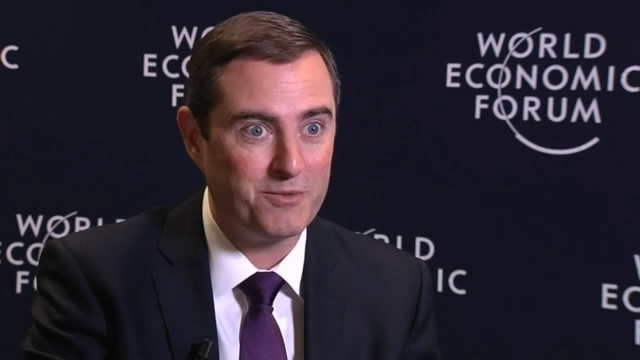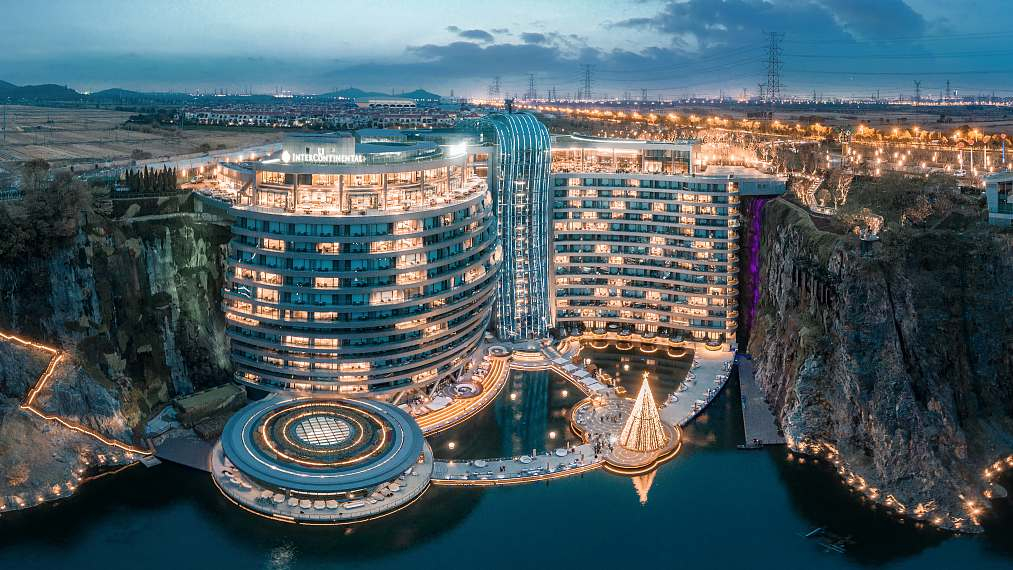
Company
22:19, 28-Jan-2019
Hotel magnate IHG continues China expansion despite economic slowdown
Updated
23:02, 28-Jan-2019
By CGTN's Global Business
03:04

Global growth is expected to moderate this year. InterContinental Hotels Group's (IHG) two biggest markets, the United States and China, are also in the trade tussle which may affect their growth. However, IHG CEO Keith Barr is still bullish on China's economy with ambitious expansion strategy for the coming years.
IHG is positive on economic growth
Amid trade tensions and high uncertainties, the International Monetary Fund (IMF) last week cut the global economic growth forecasts to 3.5 percent for 2019 and 3.6 percent for 2020. And China's GDP growth slowed to 6.6 percent in 2018 based on the official release.
"When you strip away the noise, it is still growing. When you think about it – IMF forecast GDP at 3.5 percent, U.S. still met two percent and China slowed to 6.6-6.7 percent, it still grew," Barr said.

IHG CEO Keith Barr /CGTN Photo
IHG CEO Keith Barr /CGTN Photo
"I'm really confident that China will continue to grow… Nine percent or 10 percent of GDP growth won't continue forever – can't be that big at that pace. Growing at six percent or seven percent is really a healthy growth overall for China," he added.
Barr thought economic growth has enabled IHG's growth around the world. The hotel magnate had a great report card last year, with "the best signings and the best openings for ten years, particularly in China".
To keep its momentum, IHG is launching new brands as well as acquiring brands across different segments – the group just acquired 51 percent stake in Regent Hotels & Resorts, a luxury hospitality brand, last year. "We have a great portfolio of brands, a really wonderful pipeline around the world," Barr noted.
As to the current uncertainties across the world, "I can't project the future. I hope leaders recognize that stability is a good thing," he told CGTN.
Barr views China market a long-term game
IHG was the first international hotel company coming to China. The CEO is optimistic about the potentials of the Chinese market, thanks to the country's booming domestic tourism and enlarging middle class. He also considers the company's strategy here a long-term game.

The landscape around IHG's hotel /Photo from IHG website
The landscape around IHG's hotel /Photo from IHG website
"Our view for China is always a long game. We believe that China will be one of the strongest global economies for decades to come. Chinese consumers will be one of the biggest consumers globally, both in China and internationally. And it's an amazing market for the future," he claimed.
He is amazed to see the infrastructure, transportation, hotels and destinations in China all coming together to create a world-class tourism destination.
"The infrastructure structure has changed over the last decade and has transformed the travel experience. When you travel on that, it is such an incredible experience that you connect great destinations, great cities with incredible history culture heritage," he commented.
Barr has confidence in government's ability to boost consumption, which will create more spending within the tourism sector. "I think China, unlike most countries, has so many leverages to be able to explore infrastructure investment, to use tax policies to drive consumption, and to really focus on moving away from just traditional level of growth to consumption growth."

The landscape of IHG's hotel in Shanghai /VCG Photo
The landscape of IHG's hotel in Shanghai /VCG Photo
Recently, IHG has around 400 hotels in China, with "350 hotels in development phase for the next four to five years," according to Barr.
In light of competition from locals and Airbnb, moving faster and broadening the scope to reach more types of travelers will be IHG's new methods, according to Barr. And IHG's artificial intelligence (AI) rooms will also increase its presence in China's hospitality industry.
IHG announced last year that InterContinental Hotels & Resorts had collaborated with Baidu to introduce the next generation of intelligent hospitality. A total of 100 AI-powered Club InterContinental suites will be available at InterContinental hotels in gateway cities and key destinations across China within the year. "That's going to be the future," the CEO said.

SITEMAP
Copyright © 2018 CGTN. Beijing ICP prepared NO.16065310-3
Copyright © 2018 CGTN. Beijing ICP prepared NO.16065310-3